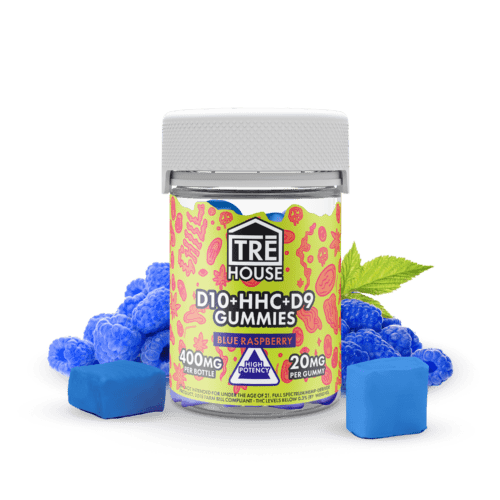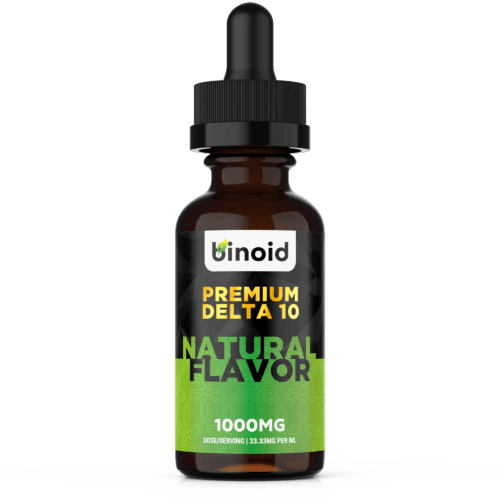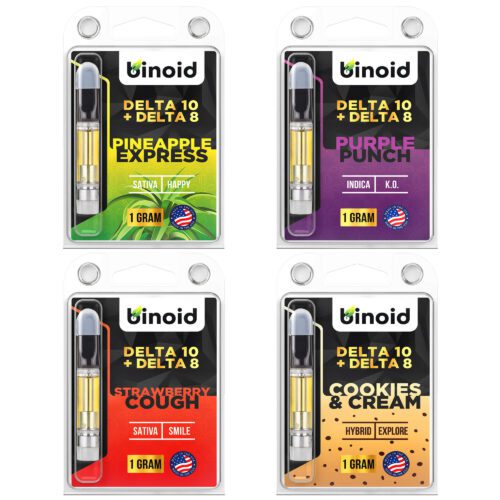
Delta 10 THC Vs. CBC
There is yet another cannabinoid hitting the scene that is already made quite a splash before it has even been widely available, delta 10 THC. Delta 10 is destined to be the next big thing in our industry, despite the fact that few people have had the chance to try it due being so incredibly new. Because we know that you’re eager to understand what delta-10 products have to offer compared to other hemp-based products you have tried so far, we are going to see how it measures up against Cannabichromene (CBC).
To buy Delta 10 THC Products Click Here
Delta 10 THC and CBC Similar Benefits
Before getting into the much-anticipated major differences between CBC and delta 10 THC, we are going to talk about the qualities that they share in common, as these two compounds are actually similar in numerous ways, which gives you a good idea of what to expect when using delta 10.
#1: Both Delta 10 and CBC are Cannabinoids
Both Cannabichromene and delta 10 THC are cannabinoids, compounds unique to cannabis, which are utilized by the body’s endocannabinoid system. These compounds bind to specific cannabinoid receptors in the body to regulate individual processes, which helps the body maintain homeostasis.
#2: Both CBC and Delta 10 are Hemp-Derived
CBC and delta 10 THC are two cannabinoids that come from the hemp plant. The hemp plant is federally legal, with the law stating that all hemp products can be sold as long as they contain no more than 0.3% delta 9 THC.
#3: Both Delta-10 and CBC are Available in Various Delivery Methods
CBC and delta 10 THC are both capable of absorbing into the body through various means, while offering their properties in a noticeable way. These two cannabinoids can both be found in the forms of tinctures, edibles, capsules, vapes, topicals and more.
#4: Each CBC and Delta 10 Could Offer Anti-Inflammatory Activity
Cannabinoids are widely studied for their potential anti-inflammatory activity, and Cannabichromene is no different, with researchers finding that CBC can suppress the body’s inflammatory response. There have not yet been studies on delta10’s anti-inflammatory potential as the cannabinoid is simply too new, but based on its similarities to delta 8 and delta 9 THC, it is extremely likely that delta 10 can deliver this specific effect as well.
#6: Both Delta 10 and CBC are Lacking in Studies on Their Properties
CBC and delta 10 THC are both less researched than more popular cannabinoids like CBD and delta 9 THC.
- Delta 10 is simply too new for researchers to have had the time and focus to analyze the compound properly.
- Extracting CBC is not as common as extracting cannabidiol (CBD).
Still, we expect these cannabinoids will be more widely studied in clinical settings in the future due to growing popularity.
#7: They May Both Play a Role in Pain Sensitivity
Pain sensitivity is a nervous system function that deals with how responsive pain receptors are to pain stimuli. As cannabinoid receptors exist within this network of pain receptors, cannabinoids do have the capability of regulating our sensitivity to pain. Cannabichromene has been pointed out as a potential analgesic with a distinctively strong ability to bind to these receptors. Still, we predict that delta 10 will be shown to offer the same effects, based on what we know about the properties of THC in general.
#8: Delta 10 and CBC Could Offer Uplifting Effects & Benefits
Both CBC and delta 9 THC have been found in studies to offer mood-lifting properties that could be useful to those with depression. Again, given the similarities between delta 9 and delta 10, the latter may also be capable of this effect. In fact, one thing we consistently hear from those who have tried delta 10 is that it offers a euphoria-like effect.
The benefits of Delta 10 THC may include motivational, happiness, relief, sleep insomnia aid. Meanwhile, we are constantly learning new CBC benefits that are becoming discovered such as pain relief and neuroprotective properties.
#9: Both May Share Neuroprotective Qualities
Like many other cannabinoids, Cannabichromene has been studied for its neuroprotective properties which could be valuable to those with dementia as well as anyone who experiences seizures. Neuroprotectants help boost neuron regeneration while keeping the neural pathways strong. Delta 8 THC and delta 9 are also known for this property, and delta 10 likely has it as well.
Differences Between CBC and Delta 10 THC
CBC and delta 10 clearly share a lot of qualities in common, mainly because they belong to the same class of compounds and come from the same plant material. But they are different enough that you can have two unique experiences with each type.
#1: Delta 10 Can Get You High
The primary property that makes delta 10 different from Cannabichromene is its psychoactive activity. Delta 10 THC is an intoxicating cannabinoid, while CBC is not. Delta10’s high is distinctive. It’s milder than that of delta 9, as is the high associated with delta 8 THC products. But, while delta-8 is known for promoting a more relaxing high, delta 10 seems to be a bit more stimulating.
#2: Delta 10 is Illegal in Some States
Laws regarding delta 10 THC are not as liberal as those pertaining to CBC, on a state level, that is. If you live in the following states, then you cannot legally purchase or sell delta 10 products in any form: Check here for a state by state Delta 10 legality list.
- Alaska
- Arizona
- Arkansas
- Colorado
- Delaware
- Idaho
- Iowa
- Mississippi
- Montana
- Rhode Island
- Utah
#3: Delta 10 Can Result in a Failed Drug Test
It is especially important to be aware of the fact that being a form of tetrahydrocannabinol THC, delta 10 can cause you to fail a drug test. THC compounds are broken down by an enzyme produced by the body called THC-COOH, and this enzyme is what urine tests are identifying. CBC is not broken down by this enzyme, and so it will not cause a failed drug test. If you’re being tested by your employer soon, you may want to hold off on using delta-10, delta 8 or any THC products.
#4: CBC and Delta 10 Work with Different Cannabinoid Receptors
Cannabichromene primarily focuses on CB2 receptors, which are found in the immune system and the digestive system. Meanwhile, delta 10 THC seems to focus most of its attention on CB1 receptors which are found throughout the nervous system. What this all means is that CBC and delta 10 each offer effects that are mainly associated with their respective affinities for particular cannabinoid receptors, which is why delta-10 has more effects on mood and CBC has more effects on inflammation.
#5: Delta 10 THC is “New”
Unlike Cannabichromene, delta 10 is “new,” meaning that it was only discovered very recently, and is only just now making its way onto the hemp market. CBC, meanwhile, has been used by many people for years. Albeit, with less mainstream knowledge and acceptance yet.
Can You Take CBC and Delta 10 Together?
Yes, because they are both cannabinoids found in the hemp plant, with neither being associated with toxic effects on the body. So, there is no reason to worry about negative consequences resulting from a combination of these compounds. In fact, cannabinoids have a synergistic relationship with each other, meaning that taking multiple cannabinoids from the same plant material at once can boost the desirable properties that each one possesses.
Which of the Two Cannabinoids is Right for Me?
As you can see, it all depends on what you’re trying to get out of your hemp experience. If the idea of a mildly intoxicating, potentially energizing and mood-lifting compound appeals to you, then consider giving delta 10 THC a try to see for yourself, what it can offer. Also, remember that you can certainly take delta 10 if you already take CBC in some form, as the two compounds once again, work together synergistically.





